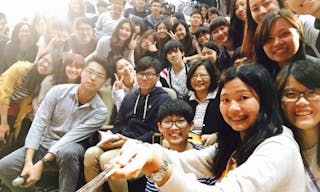What you need to know
By putting it in the same category as Donald Trump, European nationalists and Rodrigo Duterte, Tim Ferguson provides an image of Taiwan’s democracy that is unfair in the extreme.
There is something about Forbes magazine and Taiwan that I’ve always struggled to explain, and that’s the publication’s apparent dislike for the island nation’s democratic achievements. Time and again, Forbes has published articles, many of them alarmist, that unashamedly present the democratic choices that the Taiwanese make as an impediment to peace and stability in the Taiwan Strait, or to its economic prosperity.
Forbes renewed its assault in its current issue with an op-ed by Tim Ferguson titled “Asia Can Avoid Unprofitable Passions Of Nationalism.” In his piece, the author makes it very clear that he dislikes European nationalists and politicians like Donald Trump, whose candidacy he describes as “grotesque,” as well as the democratic decision surrounding Brexit, which he likens to a “political craze.”
But “thankfully,” he writes, Asia “has been spared most of the protectionist wave that’s come ashore elsewhere.” If I read him correctly, Ferguson seems to argue that Asians are somehow more “rational” and “in the main are still hopeful of rising through that mid-rung status and on to even more prosperous days.”
However, two countries seem to have failed to meet Mr. Ferguson’s standards, “spot expressions of frustration and doubt, and surprises,” he writes. One is the Philippines, where the controversial Rodrigo Duterte was recently elected. And the other is Taiwan, to many people a glowing example of successful democratic transition in Asia, but to Ferguson ostensibly on par with the “grotesque” passions of Brexit, European nationalism, and the Trump phenomenon.
Ferguson uses a very loaded term to describe the election of Tsai Ing-wen (蔡英文) in January: “uprising,” which suggests that her victory was something other, and certainly much less “rational,” than what it was: a free, fair, peaceful transition of power based on public expectations. One can almost hear him refer to it as “grotesque” and “a political craze.” What’s worse, during his visit to Taiwan last month, Ferguson says he sensed an “impetuous bent by her party,” the Democratic Progressive Party, which in the same elections gained control of parliament for the first time in the nation’s history. What that impetuousness is he doesn’t tell us, but it is presumably related to its more careful approach to Taiwan’s relations with China (“Democratic resistance to an overweening China,” he writes, “is understandable”).
It is difficult to see how the electoral outcome of the Jan. 16 elections could be compared to an uprising, which conjures images of violence, unchecked passions and populism. After all, the DPP has held office before (2000-2008) and swept Taiwan in the municipal elections in late 2014. Ferguson’s reading of the elections, moreover, seems to assume that China was a major factor in voters’ decisions, when in reality, just as in any other country, the key variables were primarily domestic. The election was no uprising: it was electoral retribution for eight years of underwhelming, and certainly disappointing, rule by the Chinese Nationalist Party (KMT), which failed to resuscitate Taiwan’s economy as it had promised it would. Those eight years were also marked by ailing democratic mechanisms and an erosion of government accountability.
And since we must discuss China, yes, Taiwan’s “overweening” neighbor, as Ferguson rightly puts it, was a factor in the elections. What is hard to digest, however, is his notion that a refusal to see one’s liberal-democratic way of life undermined, as the Hong Kong experience reminds us, by an increasingly repressive and annexationist regime constitutes an uprising. The author makes no mention of the fact that less than 10% of the Taiwanese, including many of the (in his book) more enlightened people who voted for the KMT, see unification with China as a desirable future. And sadly, on China’s intensifying crackdown on civil society, the media, lawyers and minorities, which in my book is grotesque, Ferguson is mum.
A similar, financially-driven logic applies to his criticism of the government’s decision to shut down its nuclear power sources, which he says “might not be the wisest course in an economy struggling to regain its footing.” What he fails to mention are the reasons for the apprehensions over nuclear power, which are primarily related to doubts as to the safety and integrity of Taiwan’s nuclear power plants in the wake of the Fukushima disaster in Japan. Whether Taiwan should become nuclear-free, as President Tsai and her DPP advocate, is a matter of debate. But to attribute such policies to an “impetuous bent” and, presumably, since he puts them in the same basket, “political craze” is, well, grotesque, unless Ferguson also believes that Germany, which also aims to be nuclear-free by 2022, is part of the “irrational” camp he so clearly holds in contempt.
First Editor: Edward White
Second Editor: Olivia Yang



